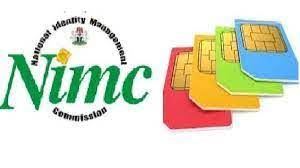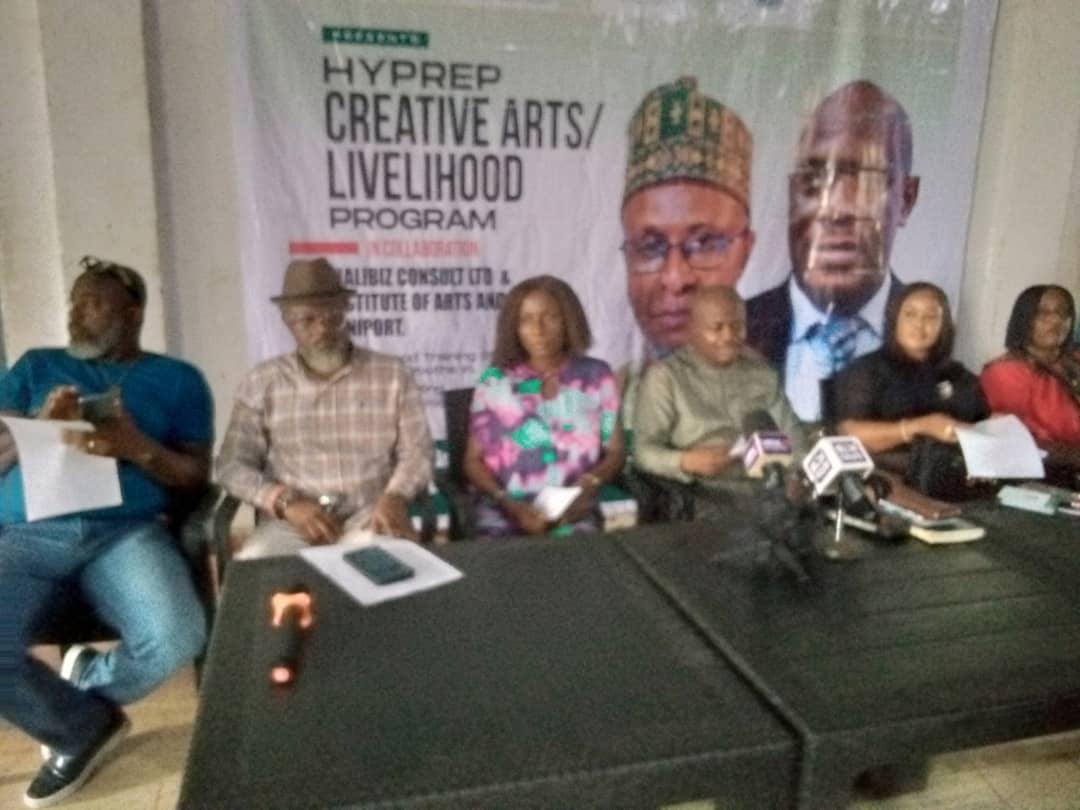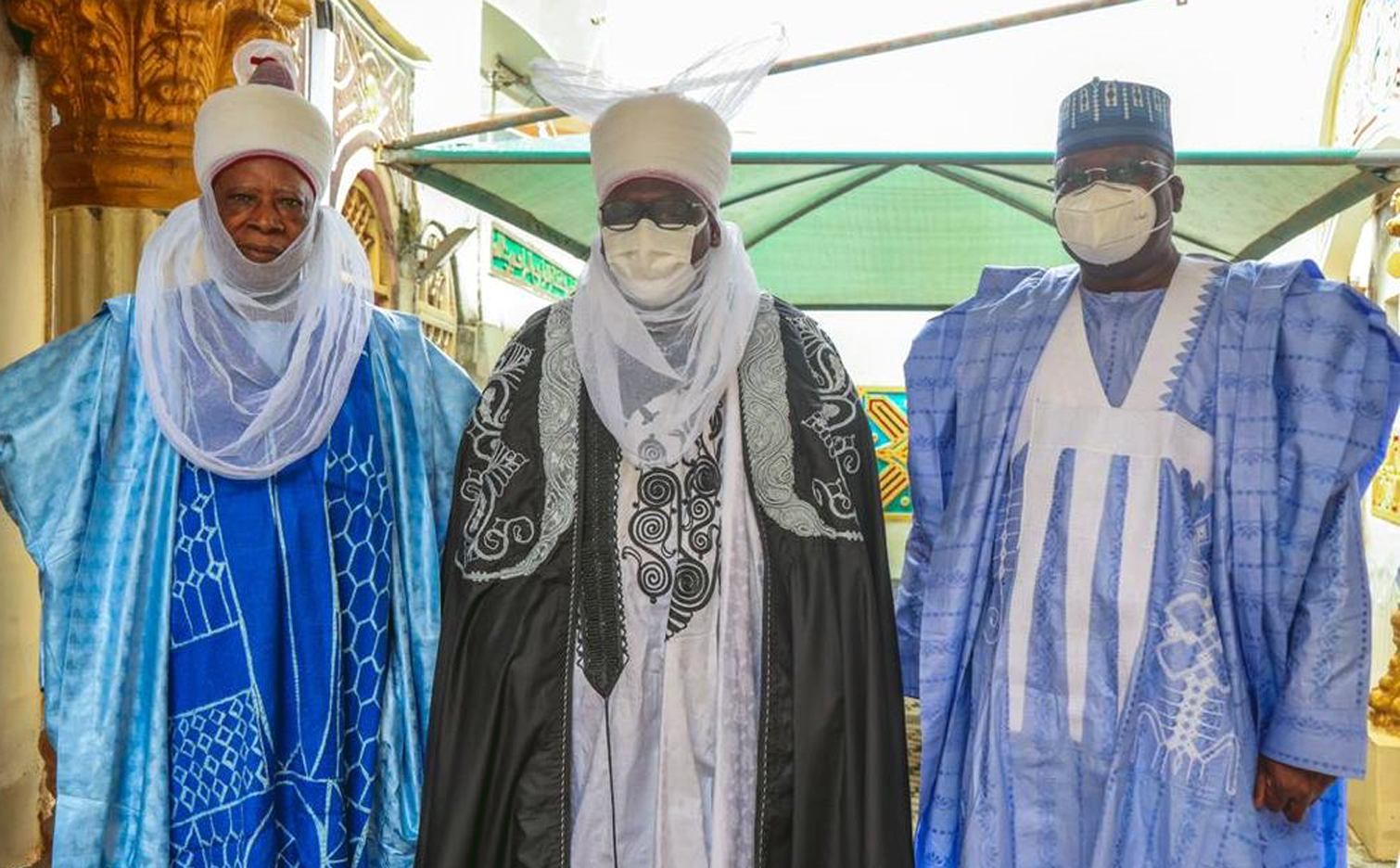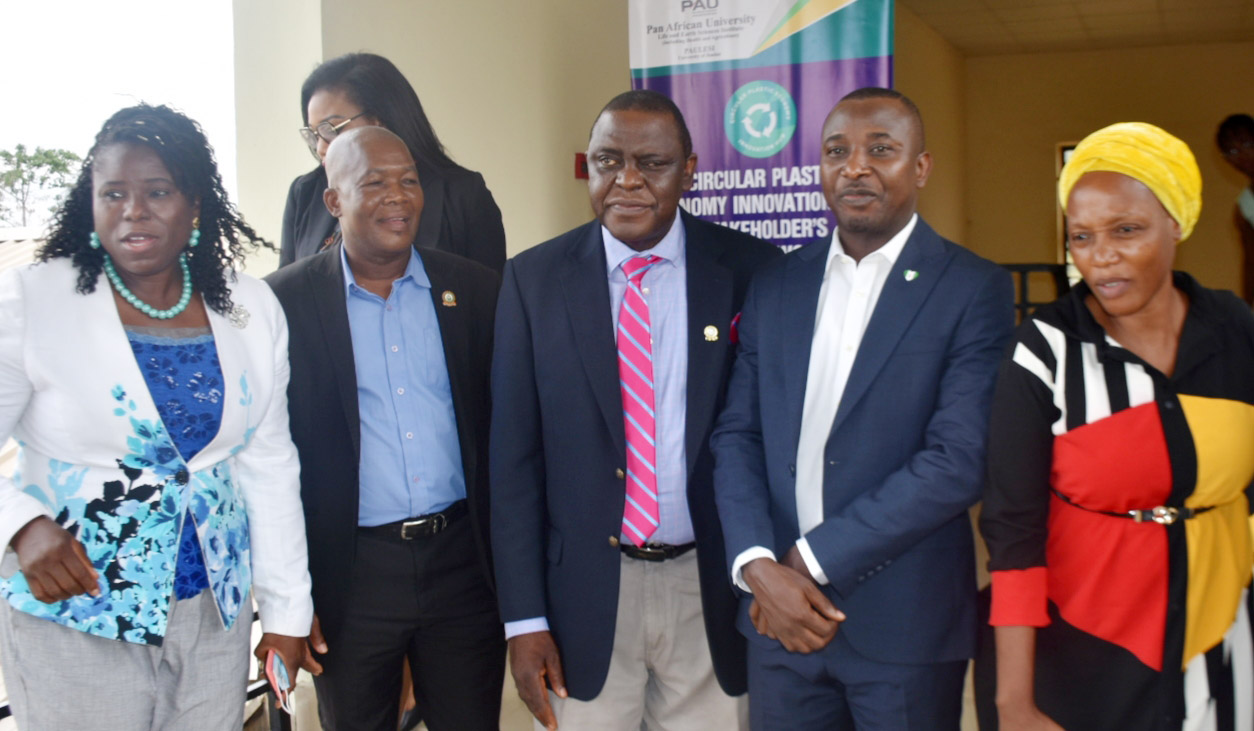Nation
SIM-NIN: Subscribers Kick Against Today’s Deadline, Demand Extension

The National Association of Telecommunications Subscribers has requested that the Nigerian Communications Commission extend the deadline scheduled for the disconnection of telephone lines not linked to National Identification Numbers beyond Friday, March 29, 2024.
The subscribers’ body argued that telco agents were failing to capture all necessary information needed for verification, just as it also cited difficulties in uploading the captured data on the National Identity Management Commission’s server.
The President of NATCOMS, Adeolu Ogunbanjo, told The Tide’s source last Wednesday that NCC needed to order telcos not to disconnect telephone lines, considering the ongoing difficulties faced by subscribers.
The telecom regulator had insisted that there would be no changes to the deadline for the next phase of disconnection
The disconnection process was rolled out in stages, with the second phase scheduled for March 29, 2024, following the initial phase that occurred on February 28, 2024.
The third phase is slated to commence on April 15, 2024, as previously announced.
Earlier, the Director of Public Publicity at the NCC, Reuben Mouka, told The PUNCH, “We issued a publication that you can refer to. We specified certain deadlines and stipulated that subscribers who do not comply with the directive would be barred. And that has not changed.”
The National Association of Telecommunications Subscribers has requested that the Nigerian Communications Commission extend the deadline scheduled for the disconnection of telephone lines not linked to National Identification Numbers beyond Friday, March 29, 2024.
The subscribers’ body argued that telco agents were failing to capture all necessary information needed for verification, just as it also cited difficulties in uploading the captured data on the National Identity Management Commission’s server.
The President of NATCOMS, Adeolu Ogunbanjo, told the source on Wednesday that the NCC needed to order telcos not to disconnect telephone lines, considering the ongoing difficulties faced by subscribers.
The telecom regulator had insisted that there would be no changes to the deadline for the next phase of disconnection
The disconnection process was rolled out in stages, with the second phase scheduled for March 29, 2024, following the initial phase that occurred on February 28, 2024.
The third phase is slated to commence on April 15, 2024, as previously announced.
Earlier, the Director of Public Publicity at the NCC, Reuben Mouka, told the source, “We issued a publication that you can refer to. We specified certain deadlines and stipulated that subscribers who do not comply with the directive would be barred. And that has not changed.”
At the last deadline on February 28, 2024, about 40 million lines that were not linked to NIN were barred.
The NATCOM president said before the first deadline, subscribers had appealed to the NCC for a one-month extension.
However, the NCC explained that there was no issue as the process was designed to occur in phases.
According to the president, the Operator’s Consumer Centre stands as the primary location for consumers to complete their registration fully, with data provided there being verifiable.
However, the president noted that telecom agents were bypassing crucial information during the registration process, resulting in incomplete registrations of subscribers.
“For example, during interactions with telecom representatives, some agents fail to collect all required the information from subscribers.
“If a subscriber cannot provide certain details, agents often leave the registration incomplete. Consequently, these incomplete registrations are deemed unverifiable,” he said.
Further, Ogunbanjo noted that NIMC also shares responsibility in this process.
He said the challenges often arise when telecom companies attempt to upload collected data on NIMC’s server, owing to network issues.
“These network difficulties, beyond the control of subscribers, hinder the timely completion of the registration process,” he said.
“NIMC’s inadequate network infrastructure exacerbates the problem. While they intend to accept data uploads, technical issues prevent them from doing so effectively.
“We urge the NCC to address NIMC’s shortcomings, improve their services, and acknowledge that meeting the deadline will be challenging given the current issues,” the president added.
NIMC is a statutory Nigerian organisation that operates the country’s national identity management systems.
NIMC’s enrollment figures as of December 31, 2023, stand at over 104.16 million unique records.
About 530,345 Nigerians in Diaspora have gotten NINs. 59.12 million male and 45.04 million female Nigerians have NINs.
When The PUNCH reached out to NIMC for comments on technical glitches, the Head of Corporate Communications, Kayode Adegoke, clarifies that the commission’s server has consistently remained operational, debunking reports suggesting otherwise.
He emphasizes that the NIMC’s services are fully functional and accessible to all users
“Our server has never been down. You can go to the various NIN centres and confirm.
Adegoke further explained the process for subscribers to link their NIN to their SIM cards,
“These individuals only need to submit their NIN and complete the verification process through their respective telcos providers.
He encouraged those who have not yet obtained their NIN to visit any NIMC centre for enrollment.
Adegoke assured Nigerians that upon enrollment, individuals can expect their NIN to be available within three hours.
However, for those requiring corrections, such as rectifying date of birth errors, the process may take up to 72 hours.
Last week, the National Identity Management Commission and the NCC issued a joint statement unveiling a strategic partnership aimed at simplifying the NIN-SIM linkage procedures for telecommunications subscribers nationwide.
Both agencies reaffirmed their dedication to enhancing the processes involved and improving efficiency regarding the NIN and SIM card linkage initiative.
They acknowledge the importance of this initiative in bolstering security measures and enhancing service delivery across the country.
The SIM-NIN linkage initiative is a crucial step towards improving the integrity of subscriber data and enhancing security measures within the telecommunications industry.
The NIN-SIM linkage policy was initially introduced by the Nigerian government in December 2020. This directive requires all telephone line users in Nigeria to associate their SIM cards with their NIN.
In December of the previous year, the NCC issued a directive stipulating that all telecommunications operators in Nigeria, including major providers like MTN, Airtel, and Globacom, among others, must enforce complete network barring on all phone lines for which subscribers have not provided their NINs by February 28, 2024.
Barely two weeks ago, the Socio-Economic Rights and Accountability Project issued a warning to take legal action against the NCC if it does not revoke the directive instructing network providers to block the phone lines of individuals who have not linked their SIM cards to their NINs.
Nation
HYPREP Inducts 100 Ogoni Youths For Creative Arts Training

The Hydrocarbon Pollution Remediation Project(HYPREP) has inducted and given orientation to 100 Ogoni youths for training on Creative Arts. The beneficiaries were drawn from Khana, Gokana, Tai and Eleme Local Government Areas of Rivers State.
The induction and orientation ceremony, which took place at the CRAB of the Department of Theatre Arts of the University of Port Harcourt on Wednesday, was a prelude to the training proper, billed to commence next Tuesday.
As usual, HYPREP issued undertaking forms to the trainees, for them to complete and submit as a guarantee that they would subject themselves to the requirements of the programme as well as be of good behaviour throughout the four-month duration of the training.
HYPREP also announced that it would pay N150,000 to each of the beneficiaries monthly, as transport and feeding allowance, stressing, however, that only those who fully participate in the training would be entitled for the allowance.
Speaking at the event, the Project Coordinator of HYPREP, Prof Nenibarini Zabbey, welcomed the trainees to the programme, saying, HYPREP’s projects are evolving and that one thing that is happening today is that the Project has gotten leadership right, by making promises and keeping those promises.
According to him, the Project had equally promised to move away from rudimentary skills acquisition to high impacts acquisition levels, which it has kept today by sponsoring the training on Creative Arts.
He noted that in planning its livelihood programmes for Ogoni youths, HYPREP has taken time out to look for skills that would add value to the lives of the beneficiaries.
Zabbey, who was represented at the event by the Director of Technical Services, Prof Damian-Paul Aguiyi said by packaging the Creative Arts training, it was expected that the Ogoni people would have their own version of Nollywood known as Ogoniwood just as Nigerians are familiar with Hollywood, Bollywood, Kannywood and Nollywood.
To achieve this goal, the Project Coordinator explained that it was the reason for choosing a reputable establishment like Halibiz Consult Limited, to partner with the Department of Theatre Arts of the University of Port Harcourt, which he described as one of the most prestigious in the Niger Delta, for the training of the beneficiaries.
He also indicated that in doing this, HYPREP was desirous of going for talents that would help the Ogoni people grow in the film industry, and urged the beneficiaries to take the training seriously.
Zabbey equally enjoined the trainees to put in their best so that in the next three to five years, they would carve a niche for themselves and become forces to reckon with in the film industry.
On her part, HYPREP’s Head of Sustainable Livelihood, Mrs Josephine Nzidee said HYPREP does what it says it will, stressing that the process of training Ogoni youths on specialised skills started three years ago.
According to her, the selection process for the training was rigorous and transparent, and was carried out by renowned actors actresses.
She disclosed that the training consists of three major aspects, which include acting, script writing and make-up, while Nollywood actors like Charles Nnoje, Ngezu J. Ngezu and award-winning make-up artist, Jude Odo would be on hand to drill and groom the beneficiaries.
Mrs Nzidee noted that the programme is a specialised training that does not have anything like starter packs but that it is purely a professional certification programme that would launch the beneficiaries into the Nollywood industry in Nigeria.
According to her, the Creative Arts training is one of the four specialised trainings organised by HYPREP to ensure that the Ogoni people are well positioned in vital industries like Aviation, Maritime, Creative Arts and Mechatronics.
She said the last of such trainings on Mechatronics would take place in the coming months, and urged the beneficiaries to take the training seriously so as to put the Ogoni people on the Nollywood map.
She further indicated that while Charles Nnoje and Ngezu J. Ngezu would take the beneficiaries on the practical aspects, Jude Odo would take them on the make-up aspects.
Also speaking, the External Relations Manager of Halibiz Consult Limited, Alabo Experience Douglas said his company gives much premium to standard and quality, and assured that the firm would give the trainees value for the money spent on the programme.
While charging the beneficiaries to be dedicated and punctual, he stressed the need for them to approach the programme with the mindset of being empty so that at the end of the day, they would benefit maximally.
On his part, the Head of the Theatre Arts Department of the University of Port Harcourt, Dr Ovunda Ihunwo said the CRAB is an acronym for Creative Review of Arts and Books, stressing that it was named by renowned playwright, Prof Ola Rotimi.
According to him, the CRAB had nurtured, groomed and produced Nollywood actors and actresses like Bobmanuel Udokwu, Ejike Asiegbu,Francis Duru, Hilda Dokubo, Monalisa Chinda, Julius Agwu, and a host of others, assuring the beneficiaries that they were on fertile environment to hone their talents.
He noted that symbolically, the crab is a nutritious seafood common in the Niger Delta, and reiterated the need for the beneficiaries to come empty for the training, as it were.
Ihunwo disclosed that the theory classes of the programme would run for three weeks while the fourth week would be for the master classes, and urged the trainees to avail themselves of the opportunity to make a difference by telling the Ogoni story, which he described as inexhaustible by themselves, in order to put Ogoni on the map.
Nation
Nasarawa Varsity Student Commits Suicide

A 23-year-old student of Nasarawa State University identified as Jatau Rilokwah, has been reportedly found dead in the university’s senior staff quarters.
A counter-insurgency expert, focused on the Lake Chad region, Zagazola Makama, disclosed this on his X handle on Tuesday.
According to him, the discovery was made on April 27, 2025, by a security officer at the university, Emmanuel Gyawo.
He stated that Gwayo was directed by Prof. Shedrack Jatau to check on his son upon arriving at the residence, and he found Rilokwah hanging from the ceiling.
“Professor Jatau, who was reportedly out of the State at the time, was informed of the incident. A team of police detectives, led by the Divisional Crime Officer of Angwan Lambu, was dispatched to the scene.
“The body showed no signs of violence, and no suicide note was found. Rilokwah was rushed to the Federal Medical Centre in Keffi, where he was confirmed dead by a medical doctor,” he further stated.
He added that the student’s corpse had been deposited in the hospital morgue.
He also quoted police sources as saying that investigations were ongoing to determine the circumstances surrounding the incident.
Nation
Ogun, Nike Art Gallery Set To Transform Olumo Rock

The Ogun State Government has partnered with Nike Art Gallery to establish a new exhibition space at the Olumo Rock Tourist Centre in Abeokuta, a move Governor Dapo Abiodun says is aimed at boosting annual tourist visits from 20,000 to over 100,000.
Abiodun disclosed the plan on Wednesday while receiving the founder of the Nike Art Gallery, Chief (Mrs) Nike Davies-Okundaye, at his office in Oke-Mosan, Abeokuta.
“I went to Olumo Rock about a month ago and I decided that we needed to do something about restoring Olumo Rock to its old glory. From statistics, Olumo Rock hosts about 20,000 people a year in its current state, and I felt that we could increase that to at least ten times,” the governor said.
As part of the plan, an events hall within the tourist centre will be repurposed as a permanent gallery operated by Nike Art Gallery.
“I told them to shut it down. Practically, we want to bring it down and turn it into a gallery for you to use as an exhibition gallery,” he told Davies-Okundaye.
He added that the gallery will be ready before the National Sports Festival in May, when the State will host about 15,000 visitors.
“I want them to be able to see our tourist sites,” he said, listing attractions such as the Olusegun Obasanjo Presidential Library, the Ransome-Kuti family home, and the Adire market among key heritage spots to be showcased.
Highlighting Ogun’s improved infrastructure, the governor said, “Now that we’ve succeeded in having the intra and inter-state roads in place, you can come to Ogun State by rail; you can come by air. We’ve constructed one of the best airports in Nigeria, and very soon, you will be able to come by sea.”
Davies-Okundaye, in her remarks, praised the state’s efforts to promote tourism and pledged to use the new gallery to attract global attention.
“This gallery will bring many Heads of State. The one I opened in Abuja already has more than 10 Heads of State, including those from South Korea and the Czech Republic. The same will happen here,” she said.
She also applauded the Governor for his commitment to the Adire fabric industry.
“Adire is all over Nigeria, but Ogun has been promoting Adire for over 50 years. Today, the only cloth we can call our own is called Adire. This is what we can sell to the Europeans,” she said.
Abiodun reaffirmed his administration’s backing of the Adire industry, citing policies such as the Adire Ogun Digital Marketplace, compulsory wearing of Adire in the state, and provision of solar-powered production equipment to support artisans.
He also revealed plans to open a creative arts and entertainment village in partnership with Bolanle Austen-Peters, expected to be completed within two months.

